Table of Contents
ToggleIn the ever-evolving world of web development, JavaScript reigns supreme. It’s the magic wand that brings websites to life, and mastering it can unlock a treasure trove of career opportunities. But before landing that dream job, there’s a hurdle to jump: the interview.
Overview of JavaScript Interview Questions
JavaScript interview questions assess various aspects of a candidate’s knowledge and skills. Common areas include language fundamentals, asynchronous programming, and browser event handling. Candidates might encounter questions about data types, functions, and scope. Understanding closures and hoisting serves as a critical topic during interviews.
Interviewers often focus on practical coding challenges. Problems may require developers to solve algorithms using JavaScript. They may also inquire about specific frameworks, libraries, or methodologies, such as React or Node.js. Mastery of these tools can showcase a candidate’s adaptability and proficiency.
Knowledge of best practices in array and object manipulation stands out in interviews. Questions about methods like .map(), .filter(), and .reduce() challenge candidates’ analytical abilities. They might also explore error handling, using try...catch for exceptions. Familiarity with modern features, such as promises and async/await, is increasingly important.
Real-world applications play a significant role. Employers seek candidates who can apply their skills to solve complex problems. Interview scenarios might simulate tasks, requiring practical solutions under time constraints. Teamwork or collaboration often surfaces in questions about project experiences.
Preparation strategies vary among candidates. Studying algorithm patterns enhances problem-solving skills. Joining coding platforms for practice can help candidates gain confidence. Mock interviews provide experience with the interview environment, reducing anxiety on the actual day.
Types of JavaScript Interview Questions

JavaScript interview questions typically fall into two main categories: technical and behavioral. Each category assesses distinct skills and qualities valuable for developers.
Technical Questions
Technical questions test candidates’ knowledge of JavaScript fundamentals. Interviewers often ask about language features such as closures, hoisting, and asynchronous programming. Candidates might face coding challenges that require them to solve algorithms or manipulate arrays and objects effectively. Questions about frameworks like React or Node.js also come up frequently. Mastering these topics not only showcases technical abilities but also demonstrates practical application in real-world scenarios.
Behavioral Questions
Behavioral questions focus on candidates’ soft skills and past experiences. Interviewers aim to understand how candidates approach problem-solving and teamwork. Examples might include asking about challenging projects or instances where they collaborated effectively with colleagues. Evaluating a candidate’s communication style and adaptability proves crucial for ensuring they fit within a team. Answers that highlight specific experiences can help illustrate a candidate’s resilience and motivation for continuous learning.
Commonly Asked JavaScript Interview Questions
Interviewers often seek to understand candidates’ proficiency in JavaScript through various questions. The following categories reflect common inquiries that assess knowledge across different experience levels.
Questions for Beginners
Fundamental concepts of JavaScript often come up during interviews for beginners. Candidates should expect questions about data types, variables, and basic syntax. Common inquiries include “What is a variable in JavaScript?” or “How do you create a function?” Understanding the difference between let, const, and var proves essential. Describing the purpose of control structures like loops and conditionals also can come into play. Additionally, questions about basic object and array manipulations provide insights into foundational skills.
Questions for Intermediate Developers
Intermediate-level candidates face more in-depth questions focused on practical application and programming principles. Topics such as closures, hoisting, and scopes frequently arise. Understanding asynchronous programming concepts like callbacks and promises is vital. Candidates might encounter problems requiring manipulation of arrays or objects in specific scenarios. Interviewers may ask, “Explain how this behaves in different contexts” or “What is event delegation?” Additionally, familiarity with ES6 features becomes crucial as candidates demonstrate their grasp of modern JavaScript.
Questions for Advanced Programmers
Advanced programmers encounter complex and technical questions that evaluate their deep expertise in JavaScript. Concepts such as prototype inheritance, performance optimization, and design patterns frequently surface. Interviewers often ask candidates to explain how JavaScript’s event loop works or to analyze the performance of a particular algorithm. Real-world problem-solving skills take center stage, with challenges that may require knowledge of frameworks like React or Node.js. Additionally, discussions about testing frameworks and best practices in code organization further showcase a candidate’s ability to write maintainable code.
Tips for Answering JavaScript Interview Questions
Familiarize yourself with common JavaScript concepts before the interview. Understanding data types, variables, and functions provides a solid foundation. Practice explaining closures and hoisting clearly, as these topics often arise.
Utilize coding platforms to engage in real-time challenges. Platforms such as LeetCode and HackerRank offer a variety of exercises. Solving diverse problems enhances not only skills but also confidence.
When faced with a question, clarify it before diving into an answer. Restating the problem helps ensure understanding. Address any constraints or assumptions, which can lead to more focused responses.
Demonstrate thought processes while coding. Use comments to explain decisions and logic during the coding exercises. This approach highlights analytical skills and effective problem-solving abilities.
Share specific examples from past experiences related to the questions asked. Illustrating problem-solving through real-world situations showcases depth of understanding. Highlight teamwork and collaboration in responses to behavioral questions.
Stay updated with the latest JavaScript features, such as promises and async/await. Awareness of modern language capabilities can impress interviewers. Consider discussing how these features impact code performance and structure.
Build rapport by engaging with the interviewer throughout the process. Ask questions about the company’s JavaScript practices or recent projects. This demonstrates not only interest but also willingness to contribute to the team.
Navigating JavaScript interviews requires a solid understanding of both technical and behavioral aspects. Candidates should focus on core concepts while also showcasing their problem-solving abilities and soft skills. Practicing coding challenges and engaging in mock interviews can significantly boost confidence.
By staying updated on the latest JavaScript features and demonstrating a willingness to learn, candidates can make a lasting impression. Ultimately, preparation is key to standing out in a competitive job market. Embracing these strategies will empower candidates to tackle interviews with confidence and competence.




